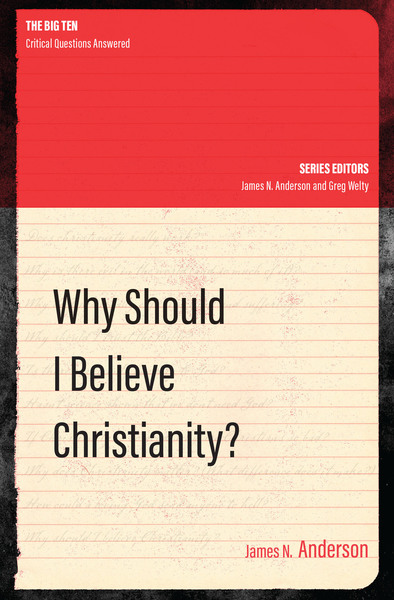A Brief Book Summary from Books At a Glance
About the Author
James N. Anderson specializes in philosophical theology and Christian apologetics at Reformed Theological Seminary and serves at Ballantyne Presbyterian Church (ARP) in Charlotte, North Carolina.
Table of Contents
Chapter 1 – Introduction: Why Believe?
Chapter 2 – The Big Picture
Chapter 3 – Christianity as a Worldview
Chapter 4 – God is There
Chapter 5 – God is Not Silent
Chapter 6 – God With Us
Chapter 7 – Defying Death
Chapter 8 – What Now?
Suggested Further Reading
Chapter 1: Introduction: Why Believe?
We are aimed toward truth. We want to believe what is true, and disbelieve what is not true. However, we need more than beliefs aimed at truth, we need reasons to believe, or disbelieve some proposition, and “reasons usually take the form of information, argumentation, or evidence that connects what we already know with what we don’t (yet) believe to be true.” We should believe Christianity because it’s true. If Christianity is true, then it affects everything else. But these claims alone are insufficient reasons for believing Christianity is true.
Some people believe truth is relative, that there is no absolute or universal truth, particularly with respect to religion. However, “the idea that all truth-claims are relative is actually quite irrational.” Some truths, such as scientific or historical facts, are certainly not relative. The very claim ‘all truth is relative’ is problematic. The problem is this: the claim that all truth is relative appears to be an absolute and universal claim about the nature of truth. But if it’s that kind of claim, then the claim itself cannot be true after all. It’s a self-defeating claim. It’s as self-defeating as sawing off the branch you’re sitting on.
Some religions, such as Christianity, are not merely about personal values, but objective historical claims. Hence they are either true or false, not relative (true for some, but not others). While skeptics concede the existence of objective truth, they doubt whether or not such truth is knowable. However, knowledge does not entail certainty. The truth of Christianity is knowable.
Truth is not always “convenient, comforting, inoffensive, or self-affirming.” Nevertheless, we should seek the reasons for and against Christianity in our attempt to learn whether or not it is true.
Chapter 2: The Big Picture
Christianity contains claims which are difficult to believe on their own, but make much more sense when fitted together in one integrated whole. Christianity is more than the sum of its parts, and should be evaluated accordingly. Christianity is a worldview. A worldview is a comprehensive philosophical view of the world. Fundamental questions are answered in virtue of a worldview.
Not only are worldviews necessary, they shape our understanding of the world and inform our evaluation of truth-claims. Some worldviews can be more true than others in the sense that. . ..
[To continue reading this summary, please see below....]The remainder of this article is premium content. Become a member to continue reading.
Already have an account? Sign In
